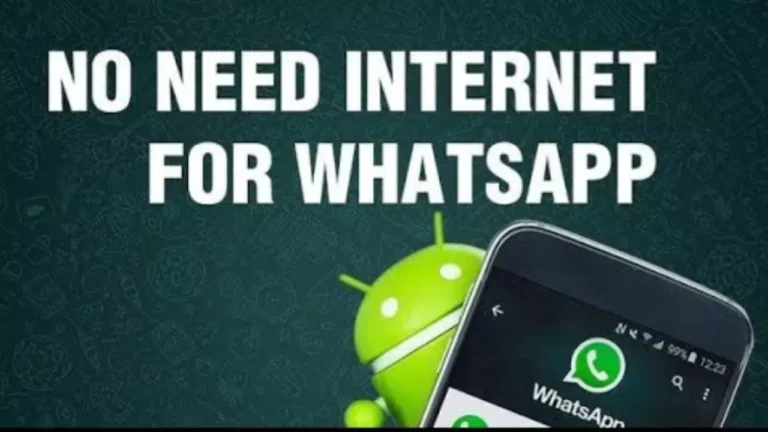WhatsApp, a widely used messaging platform, has become an essential communication tool for millions of people worldwide. While internet connectivity is usually required to send and receive messages on WhatsApp, there is a way to use the app without an active internet connection. This can be incredibly helpful in situations where you don’t have access to WiFi or mobile data, or if you’re facing network issues but still need to communicate through the app. By using WhatsApp’s proxy feature, you can send and receive messages offline, without relying on traditional internet connections.
In this guide, we’ll walk you through how to use WhatsApp without an internet connection, explain how to enable the proxy feature, and share some important tips for using this functionality safely and securely.
How WhatsApp Works Without Internet
The secret to using WhatsApp without the internet lies in its proxy feature. A proxy acts as an intermediary between your device and WhatsApp’s servers, enabling you to send and receive messages even when your phone is not connected to the internet. Essentially, this allows you to bypass the need for WiFi or mobile data.
It’s important to note that the proxy feature is only available through Meta, WhatsApp’s parent company, and you don’t need to use any third-party platforms or additional apps to make this work. WhatsApp allows you to connect to a proxy server, which can route your messages even without a direct internet connection. While the proxy feature doesn’t require a constant internet connection, it’s still necessary to connect to the proxy network itself before you can start messaging.
Read More: Jio Relaunches Rs 189 Plan: A Budget-Friendly Option Amid Price Hikes
Enabling the Proxy Feature
Here’s a step-by-step guide to enabling the proxy feature on your smartphone and sending WhatsApp messages without the internet:
- Open WhatsApp: Start by opening WhatsApp on your phone.
- Go to Settings: Tap the three dots in the top right corner of the screen to open the menu. From there, select “Settings” to access the app’s configuration options.
- Select Storage and Data: Under settings, navigate to “Storage and Data.” This section allows you to manage data usage and related settings.
- Find the Proxy Option: In the “Storage and Data” menu, you’ll find the “Proxy” option. Tap on it to enter the proxy configuration screen.
- Enter Proxy Address: Enter the proxy address that you have obtained from a trusted source. This address connects WhatsApp to the proxy network.
- Save and Confirm: Once the proxy address is entered, save the changes. You will see a green dot indicating that your proxy is connected successfully.
At this point, your WhatsApp will be able to send and receive messages even without an internet connection. You can now communicate as usual, without worrying about WiFi or mobile data.
What to Do if Your WhatsApp Isn’t Working
In case you experience any issues after enabling the proxy feature, like your calls or messages not going through, there’s a simple fix. You can long-press and delete the proxy address you entered, then try entering a new proxy address. If the problem persists, it’s a good idea to ensure that you’re using a trusted proxy address.
Using WhatsApp on Your Laptop or Desktop
If you prefer using WhatsApp on a larger screen, you can access the app on your laptop or desktop computer. To do this, open your web browser and search for “web WhatsApp.” Once the website loads, scan the QR code displayed on your computer screen with your phone’s WhatsApp app to sync the two devices.
Even when your phone’s internet is turned off, as long as the proxy feature is activated, WhatsApp will continue to work on your laptop or desktop. This makes it easy to manage your messages and stay connected, whether you’re working on your computer or using your phone.
Privacy and Security Considerations
It’s crucial to remember that while the proxy feature ensures your messages are still end-to-end encrypted, using a third-party proxy could potentially expose your IP address to the proxy provider. To maintain your privacy and security, always use proxy addresses from trusted sources.
In conclusion, WhatsApp’s proxy feature provides a great way to send and receive messages without an active internet connection. By following the simple steps outlined above, you can continue communicating on WhatsApp even when you don’t have access to WiFi or mobile data. Just make sure you use trusted proxy addresses and keep an eye on your privacy while enjoying seamless messaging on the go.


